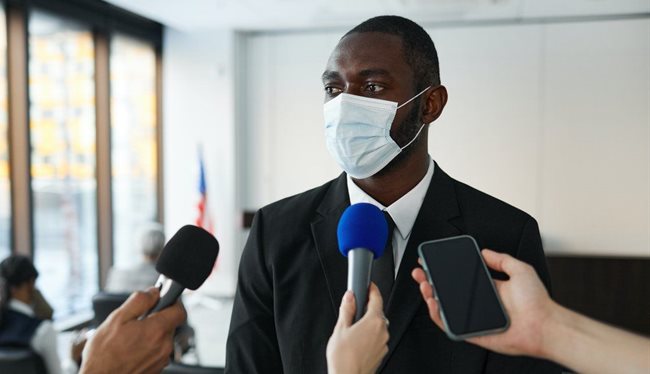
Top stories






More news


Marketing & Media
Ads are coming to AI. Does that really have to be such a bad thing?














Company spokespeople are typically quoted on stories in newspapers or magazines; they do interviews on radio or TV about the business offerings or any other developments within the organisations they represent. When they do these interviews, it can either go very well or very badly.
This is because most of these spokespeople know their subject matter but, unfortunately, do not understand how the media works. Therefore, media training is necessary because it gives spokespeople tips on how to handle the media.
During the media training, one learns the theoretical information about the media and how it works; and then there’s also the practical side of how to handle interviews.
In most big organisations, there’s a media policy that determines who is allowed to speak to the media on their behalf and those that cannot. The policy also outlines how the company expects each spokesperson to conduct themselves when representing the company, but it, unfortunately, doesn’t delve into how the media works.
Who gets to speak?
Some organisations have both primary spokespeople – these are usually the executives in the company, and then there are secondary spokespeople – these are normally the management level that reports to executives. In most cases, when there’s an opportunity and a budget for media training – the primary spokespeople are the ones that are prioritised, and this is a dangerous move.
The logic behind having both the primary and secondary spokespeople is to ensure that if the executives are not available for important media interviews, then the second in charge in a particular department would step in and do the interview. The nice thing about the secondary spokespeople is that they are usually technical people that manage the teams on the ground – this means that they know the daily happenings in the company. They generally can speak very well on the technical details of the company because they are there in the thick of things.
In the case of executives, they normally can talk about the overall business strategy on a very high level. The other advantage of using secondary spokespeople for interviews is that some, if not most, are bi-lingual, which means that they are able to do interviews with various language-specific media houses.
Live and pre-recorded interviews
The danger of not prioritising the secondary spokespeople when it comes to media training is that as much as they know their subject matter, however, most cannot handle the surprises when one does a media interview – especially a live one. In a live interview, what one says is what the audience sees whether it’s wrong or not; however, when an interview is pre-recorded, one can make mistakes, and those can still be edited out. The final product of a pre-recorded interview usually puts an interviewee in a good light.
It’s even more dangerous to put a person who is not media trained in front of a journalist when a company is facing a crisis. During a crisis, most people in the company are on edge, and it is easy for the one being interviewed to be emotional and or defensive during the interview.
When spokespeople do interviews about a crisis in an organisation, they do everything they can to avert the risk to the company’s reputation. However, the job of journalists remains - it is to ask critical questions to make sure that the audience understands what happened and how the company intends to resolve whatever issue they are facing at that point. Because of this, a spokesperson that is not media trained might find it very difficult to answer complex questions from journalists without being emotional or defensive.
This, unfortunately, does not put the company’s reputation in a favourable light. Therefore, it is essential for any company that cares about its reputation to get all its spokespeople media trained to avoid unforeseen reputational risks.
